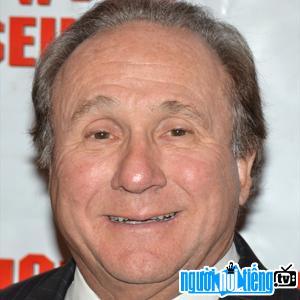TV actress Millie Davis
Index of content:
Millie Davis
Living place: Canada
Birthday: 18-6-2007 (19 years old)
Population of the world 2007: 6.7 billions
Global rank: #13503
Email: updating
Phone number: updating
Who is TV actress Millie Davis?
Young veteran actress who has had notable television roles in Annedroids, Orphan Black, Odd Squad, Wishenproof! and Doozers in addition to her film role in The Best Man Holiday.
She appeared in a few television series called Befriend and Betray, The Magic Hockey Skates and Apple Mortgage Cake.
Young veteran actress who has had notable television roles in Annedroids, Orphan Black, Odd Squad, Wishenproof! and Doozers in addition to her film role in The Best Man Holiday.
She appeared in a few television series called Befriend and Betray, The Magic Hockey Skates and Apple Mortgage Cake.
Her first appearance on television came when she was 6 months old in a commercial for Run for the Cures.
She has an older brother named Drew. Her parents Megan and Wayne Davis ran an acting school called Theater Charactors Ensemble. She appeared alongside her father in the commercial for Run for the Cures.
Close relationship
Who is Boy friend/ husband/ darling TV actress Millie Davis?
She co-starred with Dalila Bela in Odd Squad.
She co-starred with Dalila Bela in Odd Squad.
How tall is TV actress Millie Davis? What Millie Davis's weight?
Height: updating
Weight: updating
Measurements: updating
Height: updating
Weight: updating
Measurements: updating
When was TV actress Millie Davis born?
Millie Davis birthday 18-6-2007 (at the age of 19).
Where is TV actress Millie Davis's birth place, what is Zodiac/Chinese Zodiac?
Millie Davis was born in . Ms, whose Zodiac is Gemini, and who Chinese Zodiac is The Pig. Millie Davis's global rank is 13503 and whose rank is 649 in list of famous TV actress. Population of the world in 2007 is about 6.7 billions persons.
Millie Davis birthday 18-6-2007 (at the age of 19).
Where is TV actress Millie Davis's birth place, what is Zodiac/Chinese Zodiac?
Millie Davis was born in . Ms, whose Zodiac is Gemini, and who Chinese Zodiac is The Pig. Millie Davis's global rank is 13503 and whose rank is 649 in list of famous TV actress. Population of the world in 2007 is about 6.7 billions persons.
Celebrities born in:
/
/
#649
Top famous TV actress
#1077
Top famous Zodiac of Gemini
#1170
Top famous Chinese Zodiac of The Pig
#38
Top celebrities born in 2007
#1033
Top celebrities born in June
#411
Top celebrities born in 18th
Comment:
(Use English or Vietnamese)
Your name: Cotent:
Events in 2007 and 18-6
Events in the world in the birth year of Millie Davis
- Romania and Bulgaria join the European Union, bringing the number of member nations to 27 (Jan. 1).
- Leaders of Hamas and Fatah, two rival Palestinian factions, meet in Mecca and reach a deal to end hostilities and form a unity government (Feb. 7). The Palestinian legislature approves a Hamas-dominated unity government (March 17). Hamas takes control of much of the Gaza Strip (June 13). Palestinian president Mahmoud Abbas dissolves the government, fires Prime Minister Ismail Haniya, the leader of Hamas, and declares a state of emergency (June 14).
- The U.S. begins its "surge" of some 30,000 troops to Iraq to stem increasingly deadly attacks by insurgents and militias (Feb. 7).
- The International Court of Justice rules that the slaughter of some 8,000 Bosnian Muslims by Bosnian Serbs in Srebrenica in 1995 was genocide (Feb. 26).
- David Hicks, an Australian, pleads guilty to providing material support to al Qaeda. He's the first Guantánamo Bay detainee to be convicted by a military commission (March 26).
- Iranian troops detain 15 Britons (eight sailors and seven marines) claiming they were in Iranian territorial waters (March 26). The detainees are freed (April 4).
- Gerry Adams, the leader of Sinn Fein, and Rev. Ian Paisley, the head of the Democratic Unionist Party, meet face-to-face for the first time and hash out an agreement for a power-sharing government (March 26).
- Ukrainian president Viktor Yushchenko dissolves Parliament and accuses Prime Minister Viktor Yanukovich of attempting to consolidate power (April 2).
- President Vladimir Putin announces Russia will suspend the 1990 Conventional Armed Forces in Europe Treaty, which limits conventional weapons in Europe (April 26).
- In the second round of French presidential elections, Conservative candidate Nicolas Sarkozy defeats Socialist candidate Ségolène Royal, 53.1% to 46.9% (May 6).
- A commission that investigated 2006's war between Israel and Lebanon says Israeli prime minister Ehud Olmert was responsible for "a severe failure in exercising judgment, responsibility, and prudence." It also says Olmert rushed to war without an adequate plan (April 30).
- Gordon Brown replaces Tony Blair as the prime minister of Great Britain (June 27).
- Russian president Vladimir Putin announces that the country will suspend its participation in the Conventional Forces in Europe Treaty, a cold-war era agreement that limits the deployment of heavy weaponry (July 14).
- India and U.S. reach an accord on civilian nuclear power that allows India, which has not signed the Nuclear Nonproliferation Treaty, to buy nuclear fuel from the U.S. to expand its civilian nuclear energy program and reprocess its spent fuel (July 27).
- President Ramos-Horta names independence activist Xanana Gusmão as prime minister of East Timor (Aug. 6).
- Two pairs of truck bombs explode about five miles apart in the remote, northwestern Iraqi towns of Qahtaniya and Jazeera, killing at least 500 members of the minority Yazidi community, making it the single deadliest insurgent attack of the war (Aug. 14).
- Abdullah Gul, of the Justice and Development Party, is elected president of Turkey in the third round of voting by the country's parliament. He is the first Islamist president in the country's modern history (Aug. 28).
- Japanese prime minister Shinzo Abe abruptly announces his resignation. The move follows a string of scandals and his party's recent defeat in parliamentary elections, in which his Liberal Democratic Party lost control of the upper house to the opposition Democratic Party (Sep. 12). Yasuo Fukuda is elected prime minister of Japan (Sep. 23).
- Seventeen Iraqi civilians are killed when employees of private security company Blackwater USA reportedly fire on a car that failed to stop at the request of a police officer (Sep. 16). The House Committee on Oversight and Government Reform finds that employees of Blackwater USA have been involved in some 200 shootings in Iraq. The report says the company paid some families of victims and tried to cover up other incidents (Oct. 1). The State Department announces that its own monitors will accompany Blackwater employees on all security convoys (Oct. 5). An FBI report says 14 of the 17 shootings were unjustified and the guards were reckless in their use of deadly force (Nov. 13).
- Nuon Chea, who was second-in-command to Pol Pot during the four years of Khmer Rouge rule that led to the state-sponsored massacre of between 1 million and 2 million Cambodians, is arrested and charged with war crimes (Sep. 19).
- After a month of peaceful pro-democracy demonstrations that include hundreds of monks, Burmese government forces shoot at crowds, raid pagodas, and arrest monks. Dozens of people are killed. The protests are the largest in Myanmar in 20 years (Sep. 26)
- In a landmark deal, North Korea agrees to disclose details about its nuclear facilities, including how much plutonium it has produced, and dismantle all of its nuclear facilities by the end of 2007. In exchange, the country will receive some 950,000 metric tons of fuel oil or financial aid. The Bush administration will also start the process of removing North Korea from its list of nations that sponsor terrorism (Oct. 1).
- Pakistani president Pervez Musharraf is easily reelected to a third term by the country's national and provincial assemblies. The opposition boycotts the vote, however, and only representatives from the governing party participate in the election (Oct. 6). Former Pakistani prime minister Benazir Bhutto arrives in Pakistan after eight years in exile (Oct. 18). Musharraf declares a state of emergency, suspends the country's constitution and fires Chief Justice Iflikhar Muhammad Chaudhry and the other judges on the Supreme Court (Nov. 3). The Supreme Court, filled with judges loyal to Musharraf, dismisses the case challenging the constitutionality of Musharraf being elected president while head of the military (Nov. 22). Former prime minister Nawaz Sharif returns to Pakistan after eight years in exile and demands that Musharraf lift the emergency rule and reinstate the dismissed Supreme Court justices (Nov. 25). Musharraf steps down as military chief. He is replaced by Gen. Ashfaq Parvez Kayani (Nov. 28). Musharraf is sworn in as a civilian president (Nov. 29). Former Pakistani prime minister Benazir Bhutto is killed in a bombing at a campaign rally in Rawalpindi (Dec. 27).
- Cristina Fernández de Kirchner is elected Argentina's first woman president. She succeeds her husband, Néstor Kirchner (Oct. 28).
- Australian prime minister John Howard loses to the Labor Party's Kevin Rudd (Nov. 24).
- A National Intelligence Estimate says "with high confidence" that Iran froze its nuclear weapons program in 2003. The report contradicts one written in 2005 that stated Iran was determined to continue developing such weapons (Dec. 3).
- The African National Congress chooses Jacob Zuma as its leader, ousting South African president Thabo Mbeki (Dec. 18).
- Violence breaks out between rival tribes after preliminary results in Kenya's presidential elections show opposition candidate Raila Odinga, of the Orange Democratic Movement, defeating incumbent Mwai Kibaki, 57% to 39% (Dec. 27).
Birthday Millie Davis (18-6) in history
- Day 18-6 year 1812: The war between the United States and Great Britain in 1812 began.
- Day 18-6 year 1815: Napoleon was defeated at the Battle of Waterloo by British, German, and Dutch forces.
- Day 18-6 year 1873: Suffragist Susan B. Anthony was fined $100 for attempting to vote in the 1872 presidential election.
- Day 18-6 year 1928: Aviator Amelia Earhart became the first woman to fly across the Atlantic Ocean. She completed the flight from Newfoundland to Wales in about 21 hours.
- Day 18-6 year 1948: The United Nations Commission on Human Rights adopted its International Declaration of Human Rights. The General Assembly would give it final approval on Dec. 10, 1948.
- Day 18-6 year 1983: Sally Ride became the first American woman in space.
Other famous TV actress
Famous people born in 18-6-2007
Note about TV actress Millie Davis
Millie Davis infomation and profile updated by nguoinoitieng.tv.











